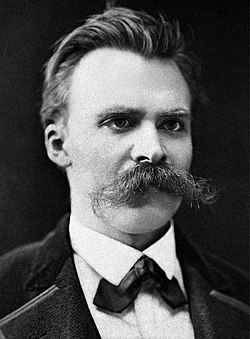Friedrich Nietzsche Quote
If, in all that you wish to do, you begin by asking yourself: am I certain that I would wish to do this an infinite number of times? This should be for you the most solid centre of gravity . . . My doctrine says, the task is to live your life in such a way that you must wish to live it again - for you will anyway! If striving gives you the highest feeling, then strive! If rest gives you the highest feeling, then rest! If fitting in, following and obeying give you the highest feeling, then obey! Only make sure you come to know what gives you the highest feeling, and then spare no means. Eternity is at stake! This doctrine is mild in its treatment of those who do not believe in it. It has neither hell nor threats. But anyone who does not believe merely lives a fugitive life in the consciousness of it.
If, in all that you wish to do, you begin by asking yourself: am I certain that I would wish to do this an infinite number of times? This should be for you the most solid centre of gravity . . . My doctrine says, the task is to live your life in such a way that you must wish to live it again - for you will anyway! If striving gives you the highest feeling, then strive! If rest gives you the highest feeling, then rest! If fitting in, following and obeying give you the highest feeling, then obey! Only make sure you come to know what gives you the highest feeling, and then spare no means. Eternity is at stake! This doctrine is mild in its treatment of those who do not believe in it. It has neither hell nor threats. But anyone who does not believe merely lives a fugitive life in the consciousness of it.
Related Quotes
A beautiful woman should always have at the back of her mind that her ravishing appearance is only an ephemeral quality. When she wakes up in the morning, looks into the mirror, and notices that somet...
About Friedrich Nietzsche
Nietzsche's work spans philosophical polemics, poetry, cultural criticism, and fiction while displaying a fondness for aphorism and irony. Prominent elements of his philosophy include his radical critique of truth in favour of perspectivism; a genealogical critique of religion and Christian morality and a related theory of master–slave morality; the aesthetic affirmation of life in response to both the "death of God" and the profound crisis of nihilism; the notion of Apollonian and Dionysian forces; and a characterisation of the human subject as the expression of competing wills, collectively understood as the will to power. He also developed influential concepts such as the Übermensch and his doctrine of eternal return. In his later work, he became increasingly preoccupied with the creative powers of the individual to overcome cultural and moral mores in pursuit of new values and aesthetic health. His body of work touched a wide range of topics, including art, philology, history, music, religion, tragedy, culture, and science, and drew inspiration from Greek tragedy as well as figures such as Zoroaster, Arthur Schopenhauer, Ralph Waldo Emerson, Richard Wagner, Fyodor Dostoevsky, and Johann Wolfgang von Goethe.
After Nietzsche's death his sister, Elisabeth Förster-Nietzsche, became the curator and editor of his manuscripts. She edited his unpublished writings to fit her German ultranationalist ideology, often contradicting or obfuscating Nietzsche's stated opinions, which were explicitly opposed to antisemitism and nationalism. Through her published editions, Nietzsche's work became associated with fascism and Nazism. 20th-century scholars such as Walter Kaufmann, R. J. Hollingdale, and Georges Bataille defended Nietzsche against this interpretation, and corrected editions of his writings were soon made available. Nietzsche's thought enjoyed renewed popularity in the 1960s and his ideas have since had a profound impact on 20th- and early-21st-century thinkers across philosophy—especially in schools of continental philosophy such as existentialism, postmodernism, and post-structuralism—as well as art, literature, music, poetry, politics, and popular culture.
